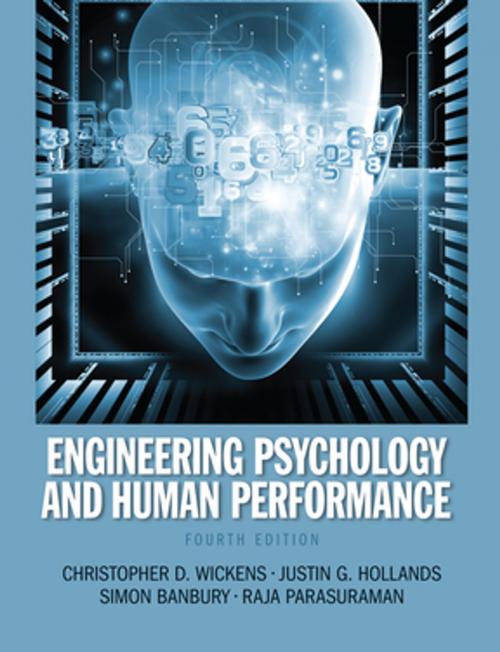Engineering Psychology and Human Performance
Nonfiction, Science & Nature, Technology, Industrial Health & Safety, Health & Well Being, Psychology, Occupational & Industrial Psychology, Applied Psychology| Author: | Christopher D. Wickens, Justin G. Hollands, Simon Banbury, Raja Parasuraman | ISBN: | 9781317351313 |
| Publisher: | Taylor and Francis | Publication: | August 20, 2015 |
| Imprint: | Psychology Press | Language: | English |
| Author: | Christopher D. Wickens, Justin G. Hollands, Simon Banbury, Raja Parasuraman |
| ISBN: | 9781317351313 |
| Publisher: | Taylor and Francis |
| Publication: | August 20, 2015 |
| Imprint: | Psychology Press |
| Language: | English |
Forming connections between human performance and design Engineering Psychology and Human Performance, 4e examines human-machine interaction. The book is organized directly from the psychological perspective of human information processing. The chapters generally correspond to the flow of information as it is processed by a human being--from the senses, through the brain, to action--rather than from the perspective of system components or engineering design concepts. This book is ideal for a psychology student, engineering student, or actual practitioner in engineering psychology, human performance, and human factors Learning Goals Upon completing this book, readers should be able to: * Identify how human ability contributes to the design of technology. * Understand the connections within human information processing and human performance. * Challenge the way they think about technology's influence on human performance. * show how theoretical advances have been, or might be, applied to improving human-machine interaction
Forming connections between human performance and design Engineering Psychology and Human Performance, 4e examines human-machine interaction. The book is organized directly from the psychological perspective of human information processing. The chapters generally correspond to the flow of information as it is processed by a human being--from the senses, through the brain, to action--rather than from the perspective of system components or engineering design concepts. This book is ideal for a psychology student, engineering student, or actual practitioner in engineering psychology, human performance, and human factors Learning Goals Upon completing this book, readers should be able to: * Identify how human ability contributes to the design of technology. * Understand the connections within human information processing and human performance. * Challenge the way they think about technology's influence on human performance. * show how theoretical advances have been, or might be, applied to improving human-machine interaction















